Australian uni gong to Taco Bell chief
GREG CREED, chief executive officer of Taco Bell, the leading Mexican-inspired quick service restaurant brand in the United States, was recently named the 2014 QUT Outstanding Alumnus of the Year.
Taco Bell and its more than 350 franchise organisations have nearly 6,000 restaurants across the US, serving more than 36 million customers every week. 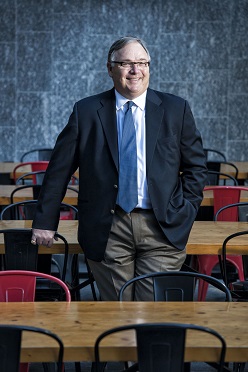
Mr Creed will become chief executive officer of Taco Bell’s owning company, Yum! Brands, on January 1, 2015.
Yum! Brands, based in Louisville, Kentucky, is one of the world’s largest restaurant companies with more than 40,000 Taco Bell, KFC and Pizza Hut restaurants in over 125 countries and territories and more than US$13.8 billion in revenue in 2013.
Mr Creed, who completed a Bachelor of Business with a major in marketing from QUT in 1977, was honoured with the prestigious award at the annual Outstanding Alumni Awards at the Brisbane Convention and Exhibition Centre.
It came after he was named the QUT Business School Outstanding Alumnus for 2014.
“I’m very humbled and honoured to be named the Outstanding Alumnus of the Year,” Mr Creed, one of the most powerful men in fast food, said.
“I haven’t been back to QUT for 37 years but I still have really fond memories of being here.”
With more than 30 years’ experience in marketing and operations with leading packaged goods and restaurant brands, Mr Creed has forged a reputation as a marketing guru after masterminding a series of impressive campaigns.
But as a high school student at MacGregor State High School, in Brisbane’s south, he had no idea which career path he wanted to follow.
“I remember being in Year 10 and not knowing what to do and I picked the science subjects which was the most stupid decision I’ve ever made because I’m no good at science,” Mr Creed said.
“So when I first applied to QUT I didn’t get in the first round and was really glad I still got a place. Then all of a sudden I started doing subjects that I really loved and it was the classic ‘aha’ where I realised if you love what you do, you tend to do really well at it.
“I just found I loved business and I loved marketing. People say university’s a spring board, which it is, but this was where I found my life’s passion. It was where I finally worked out what I loved and what I wanted to do as a career.”
After graduating, Mr Creed joined consumer goods multinational Unilever, where he would spend the next 16 years, including stints working in London, Sydney and New York.
He was lured back to Australia to the position of chief marketing officer of KFC and Pizza Hut for Australia and New Zealand in 1994, before returning to the US as chief marketing officer for Taco Bell in 2001.
“I’ve now had 20 years in the restaurant business and I love it,” Mr Creed said.
“It’s a unique sector because when I was working for Unilever I was doing all the marketing but Woolies and Coles were doing all the retailing.
“But in this business, we have to create the products and then retail them. It has its own unique challenges and it’s a very fast-paced and competitive environment, so 20 years have flown by with Yum and I don’t know where they’ve gone.”
Mr Creed’s leadership of Taco Bell has seen him spearhead numerous successful initiatives, including the development of the ‘Doritos Locos Taco’ product, which sold more than 800 million in two years and is the most-successful product launch in Taco Bell’s 50-year history.
But he said the achievements he was most proud of were mentoring young employees and the company’s socially responsible work.
“I love launching successful products but what I love more is helping young people grow and develop and mentoring them and showing them they can do things they don’t think they can do,” Mr Creed said.
Both Taco Bell and Yum were responsible for some “real social good”, Mr Creed said, employing hundreds of thousands of people across the globe and engaging in initiatives including supporting at-risk teens through high school.
Yum also has an involvement with the United Nations World Food Program, which has seen it provide more than $185 million since 2007, resulting in 740 million life-saving meals to hungry families.
Mr Creed, 57, said his advice to current graduates would be to “stay true to yourself”.
“When I turned 50 someone said ‘what do you want your legacy to be?’,” Mr Creed said.
“I thought that was a great question but it’s already more than half defined so I always say to young people, plan what legacy you want to leave and work towards it rather than wake up at 50 and realise you already have a legacy.
“Know what you’re good at but don’t try and hide what you’re not good at, because the only way you can be genuine is when you are who you are.”
Mr Creed, who once quipped he was the “Australian guy selling Mexican food to Americans,” has spent 21 of his 37 years working overseas but remains a passionate Australian with a strong affinity for the state he still calls home.
“My son was born in Sydney so when State of Origin comes round we still have a bet and I still go for the Maroons very much,” Mr Creed, who has retained his Australian accent, said.
“I’m a classic Brissie boy and a very proud Queenslander and Australian.”
Mr Creed lives in California with his wife of 33 years, Carolyn.
The 2014 QUT Outstanding Alumni of the Year winners are:
Matt Baxby, Faculty of Law
Wayne Blair, Creative Industries, Special Excellence Award for Contributions to the Creative Arts
Russell Board, Science and Engineering Faculty
Raymond Chan, Outstanding Young Alumnus of the Year
Greg Creed, Business School, Outstanding Alumnus of the Year
Anna Morse, Special Excellence Award for Outstanding Leadership in Health
Tracey Vieira, Faculty of Education
Terry White AO, Faculty of Health, Special Excellence Award for Lifetime Achievement
ends

 How to resolve AdBlock issue?
How to resolve AdBlock issue? 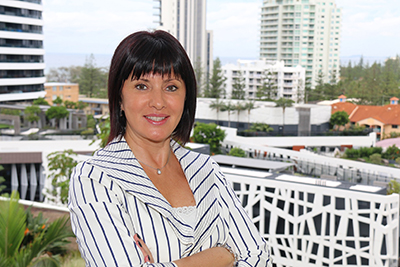
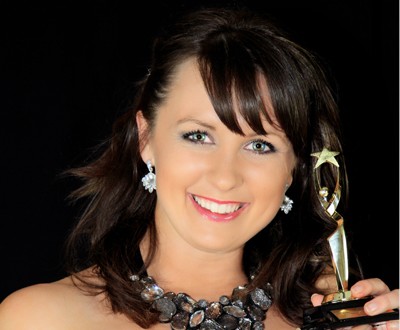
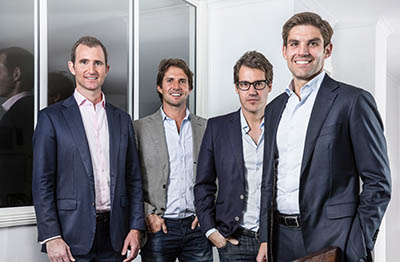
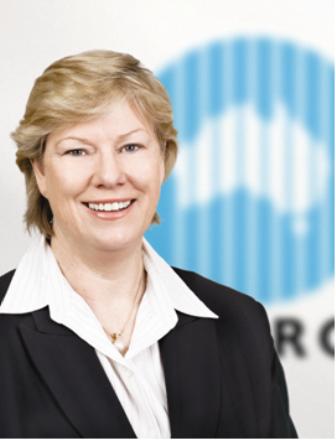 CSIRO chief executive, Megan Clark, has developed new operating arrangements at the organisation aimed at making it easier to do business with CSIRO.
CSIRO chief executive, Megan Clark, has developed new operating arrangements at the organisation aimed at making it easier to do business with CSIRO. SME Association of Australia (SMEAA) chairman Craig West has announced the appointment of award winning business owner, broadcaster and City of Sydney Councillor Angela Vithoulkas to the association’s recently restructured board as a director.
SME Association of Australia (SMEAA) chairman Craig West has announced the appointment of award winning business owner, broadcaster and City of Sydney Councillor Angela Vithoulkas to the association’s recently restructured board as a director.